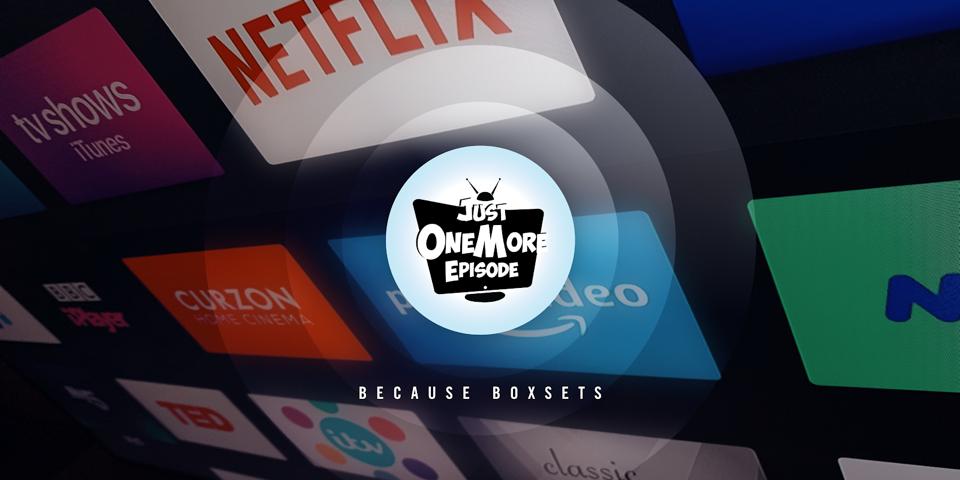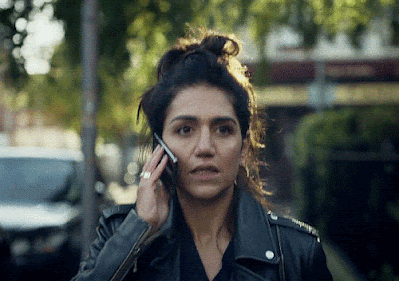Due to a human error in my home office, this week we are
back raiding the archives. Yes, I’ve
failed to time the completion of any new boxset to coincide with my weekly
post. You’d think that during another
lockdown, when there’s literally nothing else to do besides consume hours of TV
entertainment throughout the day and into the night, I would be doing better
than this. Truth is, I’ve only gone and
started a part-time MA in Creative Writing (don’t laugh, especially if you see
no improvement in the quality of this blog) and so I am occasionally drawn away
from the big telly screen in one corner of the room to the smaller laptop
screen in a different corner of the same room.
You’ve gotta switch it up. I
shan’t apologise for this oversight, as I can do whatever I want (provided I
stick to government guidelines about staying two metres away from all other
humans, unless I am testing my eyesight), but it’s also allowing me to
reminisce about a show that’s linked to significant memories in my life: American Dad! The exclamation mark is in the show’s title; I
am not overexcited.
Now seems like a good time to turn our attention to a
cartoon that set out to lampoon American foreign policy and domestic culture
wars. The year was 2005. I was an undergraduate. The White House was covered in Bush. We were told our biggest fear was terrorism,
to distract us from climate change and a lack of equality. Sixteen years later, the US is recovering
from an individual who makes Bush look like a harmless uncle, I’m jaded by
thirteen years of office work (but am back studying), we’ve made little
progress on climate change, some on equality but not enough, and the culture
wars are worse than ever. But there’s
hope in America (if not yet in the UK).
American Dad! follows the Smith family, headed up by CIA
career man Stan, often serving as the boomer/conservative voice, his wife
Francine (she comes and goes policy-wise), and their two entitled millennial
kids: Steve and Hayley. The humour comes
from the characters and the farcical things they do, often originating in
Stan’s unerring patriotism and crashing into the kids’ sensitivities and/or
self-obsessions. This, plus the
Washington DC setting, probably all sounds a bit vanilla. Firstly, let’s point out that one of its
co-creators is Seth
MacFarlane, the comic behind Family
Guy (which needs a post here too).
Any earnestness is therefore dowsed in irreverence, invoking the truism
of South Park: everyone on every side of
every argument is stupid.
Adding, then, to our human silliness, I’d now like to tell
you all about Roger, the alien. Hiding
out at the Smiths’ after being captured during secret CIA work, Roger comes
armed with a third option of opinion that often lays waste to those of the
Smith generations. An incorrigible sass-mouth,
whose penchant for showing off clashes with his need to remain hidden, Roger
has all the best lines and has to be carefully rationed in each episode so we
are left wanting more. He’s a world
champion of dressing up though, which develops in later seasons (there are
seventeen and counting) to allow more and more walks of life to be laid bare
and exposed as nonsense. Contrasting
with his sharp wit, there’s also a German goldfish who’s pervy for Francine but
unfunny in every other way. He also
murders the German language with incorrect grammar, and this is unacceptable on
all levels.
I’ll admit to being way behind on keeping up with American
Dad! It was 2007 when we first got our
hands on DVDs (yes, ancient times) of the show.
Such was our excitement that we gathered round someone’s laptop to watch
them the minute they arrived. It
happened to be the day I had finished my last final exam (I had to sit eight
three-hour papers dressed in an academic outfit called subfusc: dark suit,
white bow tie, commoner’s gown, a carnation of the right colour, carrying a
mortarboard). The university tradition
was for friends to meet you from your final paper to throw streamers and silly
string over you, give you drinks and congratulate you for surviving. I was therefore still in my formal get-up,
covered in crap, and full of cheap booze.
You’re supposed to have a wild night out to enjoy your new freedom. But I was powerless to resist the promise of
subversive new animated comedy from America.
Indeed this is proof that I have always been cool, especially as I fell
asleep after only a couple of episodes, but not before I’d heard Roger utter
his immortal lines: “By the way, Hayley, oh my god. These Chocodiles. These
Chocodiles, Hayley. Oh my god. These Chocodiles. Oh my god.”



























